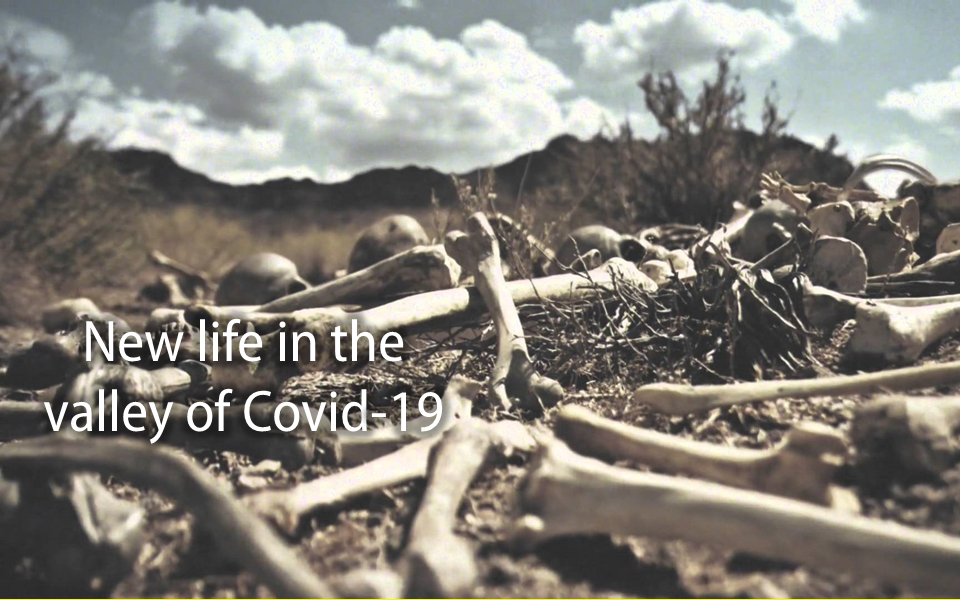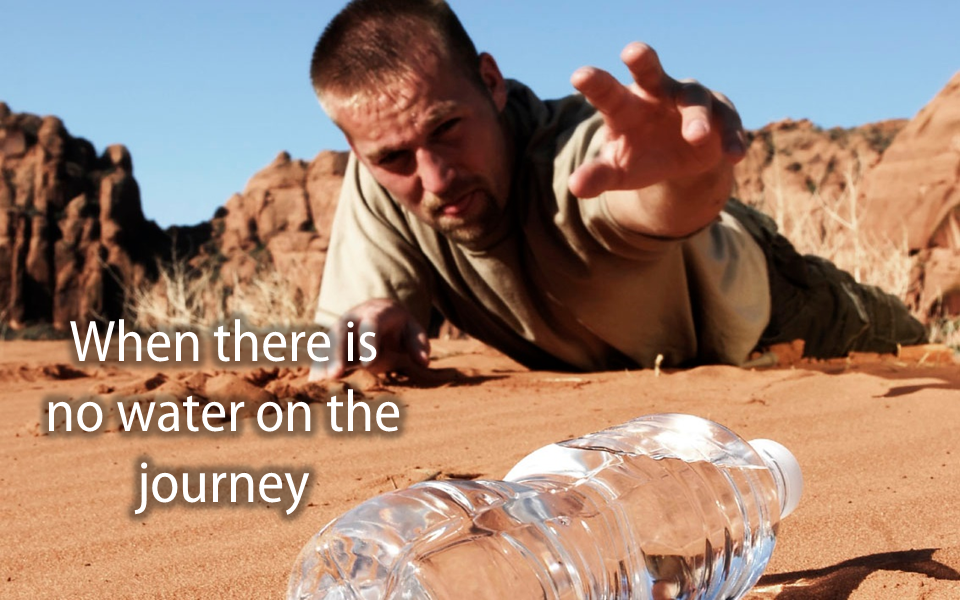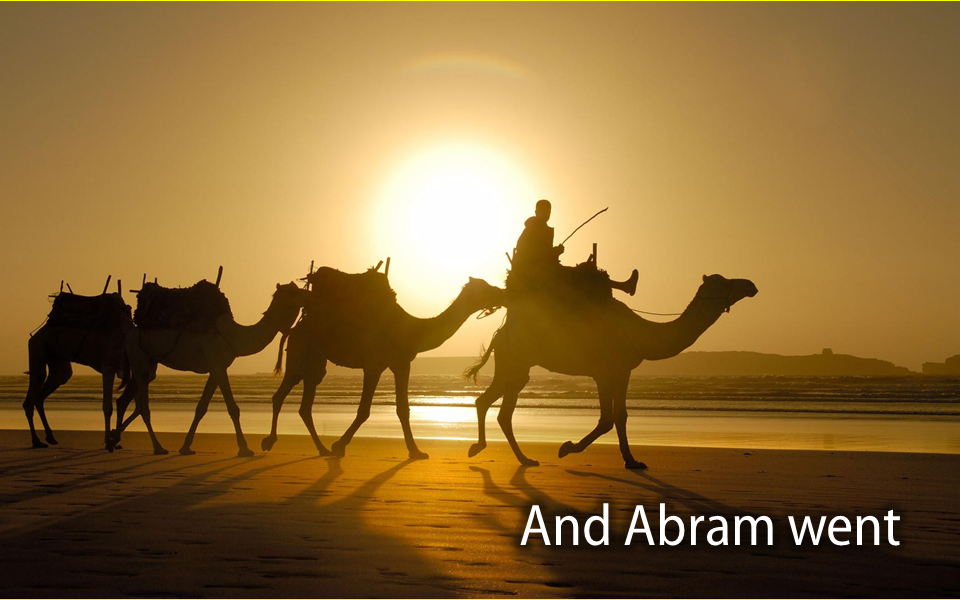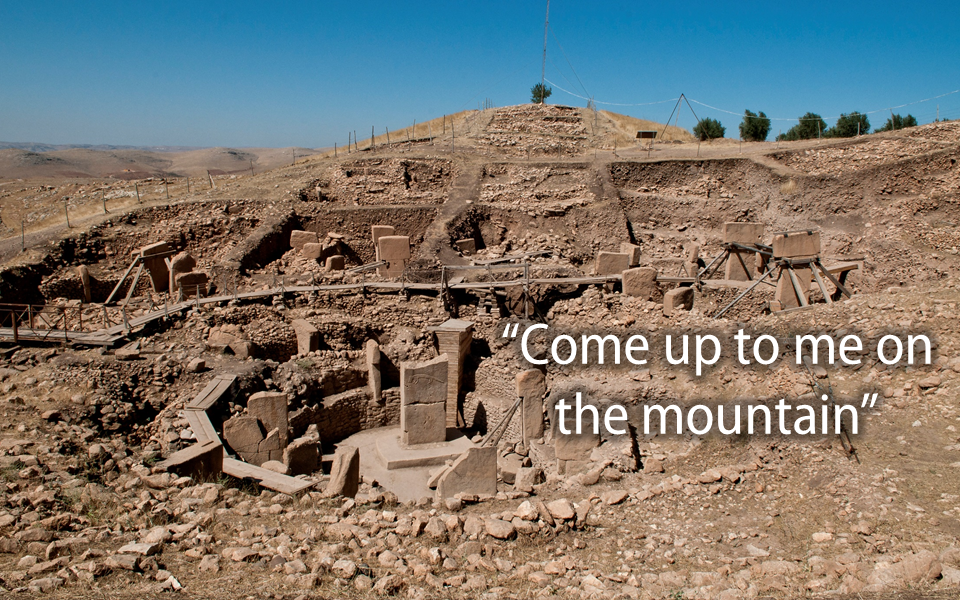Hespeler, 29 March, 2020 © Scott McAndless
Ezekiel 37:1-14, Psalm 130, Romans 8:6-11, John 11:1-45
The Book of Ezekiel in the Bible is a strange book – I mean really strange. It is full of all of these fantastic elements. In one memorable episode, for example, Ezekiel is standing by a river when he sees these strange beings flying through the air that have made some modern readers think of UFO’s – unidentified flying objects carrying aliens. Of course, they are not that, but what are they exactly? At other points Ezekiel claims that God’s spirit literally picks him up and carries him through the air over huge distances.
This has led many scholars to wonder how, exactly, we are supposed to read this book. Clearly Ezekiel is having visions – not everything he reports is happening in the real world – but how are we to know what is real and what isn’t. Where does the vision end and the physical world begin?
For example, our reading this morning starts like this: “The hand of the Lord came upon me, and he brought me out by the spirit of the Lord and set me down in the middle of a valley; it was full of bones.” It makes you wonder; what kind of spiritual mode of transportation is Ezekiel describing here and does it have any applications for modern mass public transit? But is Ezekiel really saying that the spirit of the Lord physically transported him? Couldn’t he just as easily be saying that he was taken in a vision to the valley – that there was not actually a real valley full of bones?
Or here is another possibility: maybe he was just out wandering one day, and he wandered into a real valley and noticed that it was full of bones. He realized that there was something that God wanted him to see here in this valley and so he said, “It must not have been random that I walked into this place. God must have wanted to show me something here; the spirit of the Lord must have brought me here.”
I think it must have been the latter and I’ll tell you why. It is not just because it was quite possible to go wandering around the countryside in the ancient world and stumble into a valley filled with bones. It certainly happened, after some battles, that battlefields could be left littered with dead bodies. Nobody buried them and it wouldn’t take long for scavengers and decay to turn those bodies into so many old dry bones.
So yeah, Ezekiel could well have wandered into such a valley and if it really was an old battlefield (perhaps even a battlefield where his own people had been defeated by the invading Babylonians) he certainly would have seen it as a deeply meaningful place – a place where God might well have something to show him or tell him. Believing that the spirit of the Lord had brought him there would have certainly put him in the right frame of mind to receive whatever message that might be.
But that’s not the main reason why I think that that was how it happened. I think that that is how it happened because that is kind of what has happened to us. Here we were actually just a little more than a couple of weeks ago (though it seems hard to believe that it has been so little time) – we were blissfully rambling through the countryside as if we had no cares in the world. And then what? We suddenly looked up and realized that we had wandered into a valley and this valley is rather disturbing because it is filled with bones. And these are the bones of death and the threat and fear of death. This is a serious valley where we find ourselves my friends.

And, just as there were no doubt people back in Ezekiel’s day who wandered into that very same valley and noticed the bones but didn’t find any meaning or have any visions because they didn’t have any sense that the spirit of the Lord had sent them there to give them an important message, there seem to be lots of people today who are looking at our particular valley of bones called Covid-19 and they’re not detecting any messages or visions. They are just thinking of themselves and their own needs and not thinking at all about how everything that is happening ought to be making us rethink everything about how things should happen.
But there are some who are like Ezekiel. There are some who will decide that, if we are passing through, this particular valley of bones, maybe God has some lessons for us to learn here – maybe the spirit of the Lord brought us here. (Not, by the way, because God wants terrible tragedies like pandemics to occur, but because terrible things sometimes happen for reasons we may never understand and yet God has this way of bringing something good even out of the worst situations).
Now, that may seem like a hard thing to believe when you are faced with a tragedy as bad as something that leaves a valley full of bones. But that despair was something that Ezekiel felt too. As he wandered around that valley, he particularly noted how dry all those bones were – how they were completely polished clean of life. That, in itself, must have been extraordinarily discouraging. And then he is confronted with a question – a question that he says comes from God, which is to say that it is an inspired question. “Mortal,” God asks, “can these bones live?” And of course the answer to that question is obvious. Of course they can’t live – they’re bones. They’re dead. To quote a wise man, “They’ve kicked the bucket, shuffled off the mortal coil, run down the curtain and joined the bleedin’ choir invisible!!” These bones are ex-living beings!
But, of course, that is not what Ezekiel says. He very wisely, and perhaps diplomatically, says, “O Lord God, you know.” In other words, “I’m not going to stick my neck out too far on answering this one. Things look pretty bleak, Lord, but maybe you’ve got an answer on this one.”
And I don’t know about you, but I’m going to confess that there are moments when I feel a bit like Ezekiel. I look around this valley filled with dead, dry bones and all I can see is death and decay. The fact of the matter is that it often seems as if there is little reason to trust in human nature at times like this. I can’t make dead bones live, can you? I don’t know where the hope lies but I will hold on to this: maybe, Lord God, you know.
And here is where we get to the real meaning of the vision that Ezekiel had in that valley full of bones. The fact of the matter was that in that situation, as well as in much of the situation that the nation of Judah was facing at that time, there was no hope in human terms. There is no human means to make your way out of a valley of bones. Death is a dead end for human beings. That’s the reality that Ezekiel didn’t want to admit. But a lack of human hope is not the same thing as a lack of hope. “O Lord God, you know. I may not know, but you know.”
And where is the hope that Ezekiel finally finds in the depths of that valley? Is it found in the discovery of a new vaccine? Is it found in the practice of social distancing or even in quarantine? Will these things bring our salvation? Well, no question, they are good things. God bless the researchers who are working on vaccines and treatments. God bless everyone who is listening to directions of the medical leaders and isolating and maintaining social distance. But these things, as good as they are, the best that they can do is get us back to where we were before all of this began. But I’m not sure there is any going back there. This crisis has just exposed too many of the flaws and weaknesses that were there in our society before all of this started. I suspect that the way out of this valley, if we’re going to do it right, is going to lead to a different place.
“Prophesy to these bones, and say to them: O dry bones, hear the word of the Lord.” That is what Ezekiel is told to do. And the word of the Lord never simply takes us back to the way that things were – it always take us to something new. The vision that Ezekiel receives when he prophesies is something quite fantastic. The dry bones come together, are covered over in muscle and sinew and then with skin.
But even this is not enough because a body is nothing if there is no life to animate it, so a final step is needed. For the ancient Hebrews, the life of a living being was always to be found in the breath. And breath was the same thing as the wind and it was the same word as spirit. So it was not enough for Ezekiel to prophecy to the bones; he had to prophesy to the wind as well: “Prophesy to the breath, prophesy, mortal, and say to the breath: Thus says the Lord God: Come from the four winds, O breath, and breathe upon these slain, that they may live.” And it is only at this point that the defeated and decayed host in the valley full of bones can come alive.
Note that this is a reenactment of the creation of Adam in the second chapter of Genesis: “The Lord God formed man from the dust of the ground, and breathed into his nostrils the breath of life; and the man became a living being.” This makes a very important point. What God is offering here is not a little bit of help or a healing or a cure. God is offering a whole new creation; we are starting all over again from the very beginning.
Now, Ezekiel is quite clear. All of this was a vision. If he had it because he had wandered into a valley full of bones, then the bones were still there when he left. But the vision was a metaphor for what the hope of his people was in that time of hopelessness. This was where they were: “Our bones are dried up, and our hope is lost; we are cut off completely.” When you are in that situation, you don’t need a cure. You don’t need a vaccine, you need resurrection, which is like a whole new creation and a starting all over again from the very beginning.
I am beginning to feel as if that is what we need in our present situation. I know we all may long for things to go back to how they used to be – to how everything was just a few weeks ago – but I really do not think that that is what actually needs to happen. We can’t just go back to the old guard, the old elite who sought to control everything and manipulated it all their own profit. If we get through all of this only to find that the rich have gotten richer, the poor have gotten poorer and that thousands more have fallen through the cracks of our society, then we will have failed. We need a resurrection, a whole new beginning.
I don’t know exactly what that will look like – not any more than Ezekiel knew what vision he was about to have when he obeyed the Lord and prophesied the word of the Lord, but I know how we will get there. We will get there by doing what Ezekiel did, by not being afraid to prophesy and to speak the word of the Lord. I believe that that is our task. It is, first of all, to believe that God can create a resurrection in these circumstances – that God can even make living beings out of dead, dry bones. Secondly, we need to not be afraid to prophesy in the name of the Lord, to declare, especially at times like this, that God does not tolerate profiteering, that God demands justice and not just a return to business as usual.
Prophesying has always been a dangerous occupation because those are things that this world will always resist, but do not forget what Ezekiel discovered, that that word of the Lord is a powerful thing – so powerful that it is able to bring new life even to valleys filled with dead, dry bones.






